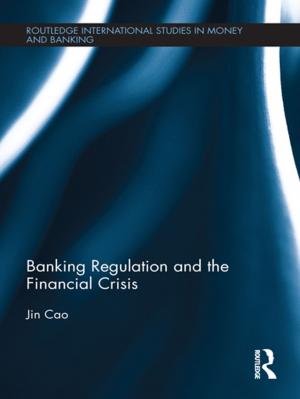Corporate Governance in Islamic Financial Institutions
Business & Finance, Finance & Investing, Banks & Banking| Author: | Hussein Elasrag | ISBN: | 9788828329237 |
| Publisher: | Hussein Elasrag | Publication: | May 27, 2018 |
| Imprint: | Language: | English |
| Author: | Hussein Elasrag |
| ISBN: | 9788828329237 |
| Publisher: | Hussein Elasrag |
| Publication: | May 27, 2018 |
| Imprint: | |
| Language: | English |
The book is of value in describing governance in Islamic institutions and how there are many issues under the investigation process, especially issues related to the Shari'ah Supervisory board and its functionality. One of the objectives of this paper is to discuss, and create greater awareness of, some of the crucial issues related to corporate governance in Islamic financial institutions. A second, but in fact more important, objective is to provide, in the light of this discussion, certain essential guidelines to improve corporate governance in these institutions and thereby enable them to not only maintain their momentum of growth and international acceptance but also safeguard the interests of all stakeholders. The book gives particular attention to the mechanisms for corporate governance, including the Board of Directors, Senior Management, shareholders, depositors, and regulatory and supervisory authorities. It also focuses on the effective management of risks and, in particular, on creating a supporting environment through moral uplift, social, legal and institutional checks, greater transparency, internal controls, and Shari'a as well as external audit. The book also indicates briefly the shared institutions that are needed for effective corporate governance.
The book is of value in describing governance in Islamic institutions and how there are many issues under the investigation process, especially issues related to the Shari'ah Supervisory board and its functionality. One of the objectives of this paper is to discuss, and create greater awareness of, some of the crucial issues related to corporate governance in Islamic financial institutions. A second, but in fact more important, objective is to provide, in the light of this discussion, certain essential guidelines to improve corporate governance in these institutions and thereby enable them to not only maintain their momentum of growth and international acceptance but also safeguard the interests of all stakeholders. The book gives particular attention to the mechanisms for corporate governance, including the Board of Directors, Senior Management, shareholders, depositors, and regulatory and supervisory authorities. It also focuses on the effective management of risks and, in particular, on creating a supporting environment through moral uplift, social, legal and institutional checks, greater transparency, internal controls, and Shari'a as well as external audit. The book also indicates briefly the shared institutions that are needed for effective corporate governance.















